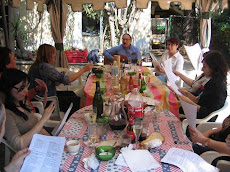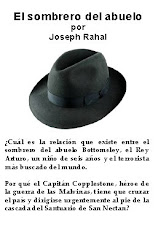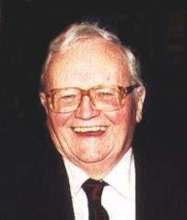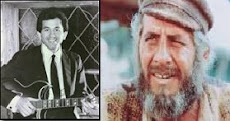Today, with Christmas so close, I want to send a special Xmas wish to all our soldiers abroad.
Please be careful, watch your back and take every possible precaution. Remember that your loved ones are constantly thinking of you and praying for your safe return. May you be blessed with a specially joyful Christmas experience this year and every other year to come. GOD BLESS YOU ALL.
I posted a song, and an article against war, in my joessongs.blogspot.com blog. I hope you'll read it and maybe suppoprt the initiative.
16/12/2008
CHRISTMAS & OUR SOLDIERS
10/12/2008
APOLOGIES & XMAS
Anyway, Christmas is just around the corner and, although we're all feeling the consequences of the financial crisis, the shops seem full and people appear to be spending a fair amount of time and money. To be honest though, the discount shops seem busier than ever; I wonder whether quality this year will be sacrificed in favour of quantity.
A couple of my groups are busy rehearsing their Xmas songs for the forthcoming Christmas Carol Concert. This will take place on Thursday the 18th at around 3.30 pm. If we manage to film it I'll post some clips and a few pictures.
IF YOU'RE THINKING OF DRINKING.... THINK ALSO ABOUT NOT DRIVING :-)
10/11/2008
OBAMA
I've just had a thought: how about renaming Bo Didley's hit song from Hey, Bo Diddley to Hey, Obama! We could just start a new rage. Or, "I come from Alabama with Obama on my knee". I do think the new president elect will be a great source of inspiration. Let's all wish him good luck in his new job and a safe and happy stay in the White House.
26/10/2008
NEW BLOG FOR BEGINNERS
I hope you'll find it useful. Don't forget to send your comments.
20/10/2008
FINANCIAL CRISIS
So there's a new financial crisis. I don't know about you, but I think I've had enough bad news this year, so I'm all for a good laugh. I hope you'll join me. Here are the views of two famous comedians on the on- going financial crisis (with Spanish subtitles for my Catalan and Spanish students).
25/09/2008
WELCOME BACK TO THE NEW ACADEMIC COURSE
as it flew south across the border.
But now that autumn's chill begins and winter's near
I start to feel a little colder ...
and a little older!
Welcome back. I hope you've all had an enjoyable summer holiday (those of you who live in the northern hemisphere, that is!). Summer went by all too fast for me - which explains my little poem above - and I do feel a little colder; must be old age creeping up on me. Anyway, I managed to write a couple of stories and compose a couple of songs, one of which is my previous posting.
So, glad to have you all back and I hope you'll continue to enjoy popping in from time to time. Do post a comment now and then.
Joe.
01/08/2008
IN A PERFECT WORLD
Anyway, when I did finish it, I thought I'd try and do something useful with it. So, I created the accompanying video. The quality is not exactly "PERFECT", probably due to the conversion of files to an acceptable format, but it does reflect the kind of world we live in. In any case, I'm working on it. Maybe by the time I improve it enough the world WILL be a better place!
You can also access it directly at youtube:
http://www.youtube.com/watch?v=mBC3LSre10Y
I hope you like it.
17/07/2008
HELLO AGAIN & THANKS
This has definitely been one of the most exhausting academic years I can remember, though I must confess it has also been one of the most rewarding. Working on this blog, and on the others, has really been fulfilling. It has been especially satisfying to see the number of visits increase week by week, with visitors coming from as far away as Mexico, the States or India (you can check out the statistics yourselves by clicking on the small graph at the bottom left hand corner of the page) Thank you all; you really make it worth while. Do post a comment, however; you're thoughts will be greatly appreciated.
I thought the following song would be especially appropriate. Cliff Richard singing about a Summer Holiday in the film "The Young Ones". Lyrics below the video. Enjoy.
LYRICS - Summer Holiday by Tony Temple/Dell Clyde - Sung by CLIFF RICHARD
We're all going on a summer holiday. / No more working for a week or two. / Fun and laughter on a summer holiday. / No more worries for me or you. / For a week or two.
Were going where the sun shines brightly. / Were going where the sea is blue. / We've seen it in the movies. / Now let's see if its true.
Everybody has a summer holiday, / Doing things they always wanted to.
So we're going on a summer holiday, / To make our dreams come true, / For me and you.
10/07/2008
END-OF-COURSE CONCERT

28/06/2008
SPECIAL REQUEST .... & USED TO
As far as "USED TO" is concerned, and for the benefit of my Students of English, I thought the song was a good way of illustrating that "used to" , followed by an infinitive is equivalent to "usually" in the past. Let's look at a couple of examples:
Present - I usually start work at 8 am. (A habit in the present)
Past- I used to start school at 9.15 am when I was young. (A habit in the past)
In the song, Mary Hopkin sings about the place "where we used to raise a glass or two".
What a lot of students don't know, however, is that we can use "Would" with the same result:
Present - My grandparents usually visit us every Saturday evening. (A habit in the present)
Past - My grandparents would visit us every Saturday evening. (A habit in the past)
In the song, Mary Hopkin sings "We'd sing and dance....We'd live the life.... We'd fight and never lose..."
Here's the full video from youtube. (I wonder how many of you knew it's based on an original Russian folk song!). Lyrics on the left and in the video itself. Enjoy.
23/06/2008
MORE RIDDLES & THE FEAST OF SANT JOAN
SANT JOAN - This is, without a shadow of doubt, my favourite Spanish festivity. The shortest night of the year becomes, in fact, the longest one, since very few people actually go to bed before the dawn. Indeed, it's quite common to see thousands of party-goers in Barcelona congregating on the beaches, after celebrating all night - with fireworks, cava and the traditional "Coca de Sant Joan" - to watch the sun rising on the horizon over the mediterranean sea. ABSOLUTELY MAGNIFICENT
11/06/2008
ANSWERS
http://www.askoxford.com/asktheexperts/faq/aboutwords/fivevowels?view=uk
04/06/2008
5 EYES and a WHY - answer
i--i--i-i-i-y (5 "i"s and a "y"!).
Am I right, Mike?
And now, an English word containing 5 vowels, all joined together! This one's also from Mike. Thanks Mike.
25/05/2008
FIVE EYES AND A WHY
What English word has five eyes and a why? Thanks Mike. Keep it up.
By the way, noone's answered my first riddle yet: "What did the big chimney say to the little chimney?"
The word-dominoes competition in the First Certificate group was won by Angel, who managed to connect 9 dominoes correctly. Well done Angel, you've won a CD. Keep it up.
21/05/2008
La Patum
Hello Joe,This week is "la patum”.The main and more spectacular activity is today (21/5) about 12:00. The people make an spectacular dancing in a small square (the people make a concentric circles and they dancing without electric light the only light is from some people that carry a fireworks).It’s spectacular and exciting.You can fine all the thinks about this typical and traditional festivity in this web: http://www.lapatum.cat/
Here's another link for this famous Catalan feast. This one's in English.
http://www.bergueda.com/lapatum/festa.asp#
15/05/2008
END-OF-COURSE PARTY
30/04/2008
QUESTIONS
IN GENERAL, a question starts with a question word (when we want information) or an auxilliary verb (when we want confirmation, i.e. yes or no).
QUESTION WORDS - WHAT, WHERE, WHEN, WHO, WHICH, WHY, WHOSE, HOW.
Very often, these question words are accompanied by other words that complete the information we require. For example: WHAT COLOUR, HOW MUCH, HOW MANY, WHICH ONE, HOW OFTEN, WHOSE CAR,ETC..
AUXILLIARY VERBS - AM, IS, ARE, WAS, WERE, HAVE, HAS, HAD, DO, DOES, DID, plus the MODALS: CAN, COULD, MAY, MIGHT, WILL, WOULD, SHALL, SHOULD, MUST, (and a few more complicated verbs, like ought to and need, which can act as auxilliary verbs). Here are some examples: ARE YOU....? IS THE NEW MANAGER...? CAN WE GO...? DID THE MEETING...? MUST WE...?
The BASIC order of a question is as follows:
For questions requesting information -
QUESTION WORD (INCLUDING ANY ADDITIONAL INFORMATION REQUIRED) - AUXILLIARY VERB - SUBJECT - MAIN VERB - COMPLEMENT.
EXAMPLES: Why do you work there? Where did you put the document? How much does it cost?
For questions requesting confirmation - AUXILLIARY VERB - SUBJECT - MAIN VERB - COMPLEMENT.
EXAMPLES: Do you work here? Did you put the document in the desk? Does it cost much?
NOTICE THAT when you use do, does and did, or any of the modal verbs (can, could, etc.) the main verb is in the infinitive) MORE ON THIS IN MY NEXT ARTICLE.
EXCEPTIONS 1:
The verb "To be" is a curious verb. It can work alone, as the only verb in a sentence, AND it can work as an auxiliary verb, accompanying other verbs.
EXAMPLES:Are you a doctor? Where is the car? (You will notice that no verb is placed after the subjects "you" and "the car", and the verbs "are" and "is" go where auxilliary verbs usually go, i.e before the subject.)
Are you drinking beer? What are you drinking? (Here, the order is the usual one because there is an additional verb - "drinking")
EXCEPTIONS 2:
WHO and other question words, when they request information about the subject. Who wants an ice-cream? Which one is mine?
This is a little more complicated, so I will deal with it separately in my next article.
As with all other aspects of the language, the more you practise the better your English will become. GOOD LUCK and GOOD PRACTICE!
USEFUL LINKS FOR QUESTIONS:
http://www.curso-ingles.com/gramatica-inglesa/question.php
http://www.curso-ingles.com/ejercicios-ingles/questions.php
http://www.mailxmail.com/curso/idiomas/verbosingles/capitulo7.htm
http://a4esl.org/q/f/z/zz87mca.htm
http://www.englishclub.com/grammar/verbs-questions_structure.htm
http://www.spotlight-online.de/CoCoCMS/generator/viewDocument.php?doc=2972&archive=1 http://www.learnenglish.de/grammar/questiontext.htm
http://www.english4today.com/englishgrammar/grammarfaq/
THIS LAST ONE DEALS WITH FREQUENTLY ASKED QUESTIONS ABOUT ENGLISH.
AND HERE'S A SONG - "THE MOODY BLUES" ASKING A VERY IMPORTANT QUESTION:
Video. http://www.youtube.com/watch?v=YrPGV452X6s&feature=related
Lyrics: http://www.allspirit.co.uk/question.html
21/04/2008
MY BOOKS
What you may not know, and is less easy to understand, is that I usually write in Spanish. I also write in English, of course, though I haven't finished anything yet. The reason I tend to write in Spanish is that most of the stories were originally conceived as bedtime stories for my grandson, who was born and is being educated in Spain. From there it was just a step before I converted them into novels.
I've set up a new blog to put them within reach of a wider public. The blog has been created, but it will be a little time before I manage to get over the technical problems of getting the books in there, so please be patient.
http://www.loslibrosdejoe.blogspot.com/
16/04/2008
MORE READING MATERIAL..... and a SONG
http://younglearners.eslreading.org/stories/stories/prisonerofzenda.html
And here's the song, another one of my favourites. I'm sure you'll like it too.
Lady in Red by Chris de Burgh
Video: http://www.youtube.com/watch?v=OcWspfgk9c8
Lyrics: http://www.stlyrics.com/lyrics/americanpsycho/ladyinred.htm
10/04/2008
READING
Reading will help you recognise, revise and consolidate the structures you have studied. At the same time, it will introduce you to new vocabulary.
To do this effectively, however, it is a good idea to read books that are slightly (a little) below your own (personal) level. As your level increases, so will the level of your reading material.
Don't be tempted to aim (choose as an objective) too high. After all, the object is to enjoy, as well as improve, your English, not to spend all day looking up words in the dictionary!
Graded readers (books of varying levels) are there to help you do just that! Spending 5 or 10 minutes every day reading a relatively easy book can be much more beneficial than spending 1 hour once a week!
Useful links for students:
General:http://www.richmondelt.com/spain/english/resources/richmond_times.htm
Reading:http://www.richmondelt.com/spain/english/resources/PDF/richmond_times/2%20Ciclo%20Eso/Richmond12_low_18.pdf
Listening:http://www.richmondelt.com/spain/english/resources/audio/rt12/13.mp3
Other useful links for students:
http://www.macmillanenglish.com/readers/studentsite/bookclub.htm
http://www.short-stories.co.uk/
http://www.crimelibrary.com/
http://www.awesomestories.com/index.php
http://dewey.uab.es/pmarques/pdigital/webs/cmprimenglish.htm
http://www.cambridge.org/elt/elt_projectpage.asp?id=2500560
I shall be adding more links as and when I descover them. It's especially difficult to find easy texts!
Links for teachers:
http://www.marmaraelt.com/kategori/reading-texts/
http://iteslj.org/
http://www.ihes.com/bcn/tt/eltblog/blog/labels/Reading%20activities.html
http://www.eoiburgos.es/ingles/websitesrecommended.htm
This last one is definitely one of the best I've seen!
07/04/2008
MORE SONGS
Here's a song I'm sure you'll all like. Needless to say it's one of my favourites. The first line is pure poetry: Lay a whisper on my pillow...!"
Enjoy...
Video:
Lay a whisper on my pillow - Leave the winter on the ground - I wake up lonely, there's an air of silence - In the bedroom and all around - Touch me now, I close my eyes And dream away...
It must have been love, but it's over now - It must have been good, but I lost it somehow
It must have been love, but it's over now - From the moment we touched till the time had run out.
Make believing we're together - That I'm sheltered by your heart - But in and outside I turn to water - Like a teardrop in your palm - And it's a hard winter's day I dream away...
It must have been love, but it's over now - It was all that I wanted, now I'm living without
It must have been love, but it's over now - It's where the water flows, it's where the wind blows
It must have been love, but it's over now - It must have been good, but I lost it somehow
It must have been love, but it's over now - From the moment we touched till the time had run out
02/04/2008
ENGLISH and SONGS (and the Second Conditional!)
Let me illustrate how useful this technique can be with a song that was popular in the sixties.
[It's from the West End musical, Pickwick, based on Charles Dickens' The Pickwick Papers. In the context of the stage musical, the song is sung by Samuel Pickwick when he is mistaken for an election candidate and called on by the crowd to give his manifesto.-Source Wikipedia]
The song 's title is "If I ruled the world". It's a very good example of the Second Conditional and is a really good opportunity to practise this relatively difficult grammatical structure (If I had a car I would drive to Rome)
Video:
Lyrics: http://www.lyricsdepot.com/tony-bennett/if-i-ruled-the-world.html
Now, compare it with "If I ruled the world" by Nas (Different song, much more difficult, rap style)
Video: http://www.youtube.com/watch?v=nMn2cCBwH18
Lyrics: http://www.azlyrics.com/lyrics/nas/ifiruledtheworld.html
By the way, the first version is by Tony Bennett. Sir Harry Secombe's version is far better, but I can't find it anywhere. HELP!
While we're at it, What would Trini do if he had a hammer? and what would Topol do if he were a rich man? Answers below!
Video - Trini: http://www.youtube.com/watch?v=oyTO5vcFWuw&feature=related
Lyrics - Trini: http://www.oldielyrics.com/lyrics/trini_lopez/if_i_had_a_hammer.html
Video - Topol: http://www.youtube.com/watch?v=RBHZFYpQ6nc
Lyrics - Topol: http://www.stlyrics.com/lyrics/fiddlerontheroof/ifiwerearichman.htm
If you found this method useful let me know by e-mail or by posting a comment below. I would then include some more songs.
Enjoy!
22/03/2008
EASTER
My mother would boil some eggs. When the hard-boiled eggs were completely cold, my brother, my four sisters and I, and occasionally some friends, would get down to the seemingly impossible task of converting the dull, inanimate shells into miniature masterpieces. We used food colouring, mainly, which we carefully applied with cotton wool and brushes.
Our creations usually consisted of heads: bald heads, funny heads, sad faces, animal heads, etc. We did, however, produce the odd ship or farmhouse.
When the paint was dry, we would rub the egg with oil to make it shine and protect the paint.
On Easter Sunday, during lunch, the eggs were judged by our parents and relatives and the winner of the painting competition was allowed to keep the winning example. This was followed by the "egg tapping" game. The rest of the eggs were shared out and each player hit another player's egg with his/her own egg. The winner was the holder of the last intact egg. The losers got to eat their eggs while the winner of the game was also allowed to keep his/her egg.
I don't think I ever won a single egg painting competition.... but I did manage to eat dozens of colourful eggs!
13/03/2008
CHESS
For those interested in this game here are the English names for the pieces:
Pawn = Peón
Rook = Torre
Knight = Caballo
Bishop = Alfíl
Queen = Dama
King = Rey
To check is Dar jaque.
Check mate is jaque mate.
Resign is abandonar
Offer a draw is ofrecer tablas.
To draw is hacer tablas.
From time to time I shall include short articles with some more vocabulary.
Interesting chess links:
This one's my son Michael's. It contains a number of recommended chess sites - http://mikerahal.blogspot.com/
The Catalan Federation -
http://www.escacs.cat/
SPEAKING (First Certificate Exam and Higher)
You can of course play safe and use the standard "In my opinion" or "I think", etc.
But, how about being a little bit more daring and stun you listener with "If I were to hazard a guess, I'd say that...", or "From a purely personal point of view, I'd say that...".
Try "It's quite evident that..." or "It seems perfectly obvious that..." when the answer is quite clear.
When in doubt, you could venture :"I could be wrong, of course, but I'd say that...".
When absolutely certain of what you are looking at: "Well, I'd be prepared to bet my last farthing that..."
NOTE:
Speaking, contrary to popular belief, is not an intellectual activity. It's entirely Physical. It requires coordination between brain and vocal chords. Your brain sends a message to your vocal chords and they, in turn, perform the action. As in all other physical exercises, perfection requires practice. It's not enough to "KNOW" what you have to say, you ACTUALLY HAVE TO SAY IT...... AND SAY IT WELL!
Which means Plenty of REPETITION - Listen... and then Repeat.
REPEAT to improve your pronunciation.
REPEAT to improve intonation (Rythm and stress).
REPEAT to improve fluency.
07/03/2008
ADJECTIVES - and their position
General Information (specially for beginners)
Adjectives are invariable, i.e. they do not change according to the gender and do not take the plural (eg. A young boy, a young girl, young boys, young girls)
Adjectives are usually placed before the noun they describe (eg. A big town), but they can also go after certain verbs (eg. This town is big).
Position of Adjectives
When more than one adjective is used, the order in which you place them is important. Opinion adjectives come first (nice, interesting, ugly, etc.) and they are followed by fact adjectives (long, old, expensive, etc.)
eg. I bought a nice new shirt last week
We don't normally use more than one opinion adjective, but we often use more than one fact adjective. The relative position of fact adjectives is as follows:
- [How big is it?] Size & length are usually followed by shape & width (eg. a large oval desk, a long narrow building)
- [How old is it?] Age (eg. a large new desk)
- [What colour is it?] Colour (eg. a large new brown desk) NOTE: when using more than one coulour use "and" before the last one (eg. a large new black and brown desk)
- [Where is it from? ] Origin (eg. a large new brown scandinavian desk)
- [What is it made of?] Material (eg. a large new brown scandinavian wooden desk)
NOTE - We don't normally use more than three adjectives together in English. If you want to say "Last week, I bought a large new brown scandinavian wooden desk for my study", try saying it in two separate sentences. For example; "Last week, I bought a large new wooden desk for my study. It's brown and comes from Scandinavia."
Useful link ADJECTIVES
http://www.learn4good.com/languages/evrd_grammar/adjective_order.htm
Useful link GENERAL GRAMMAR
http://www.ego4u.com/en/cram-up/grammar






















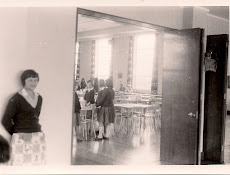









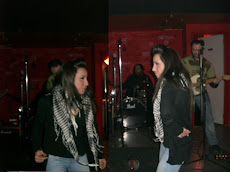










%5B1%5D.jpg)






































